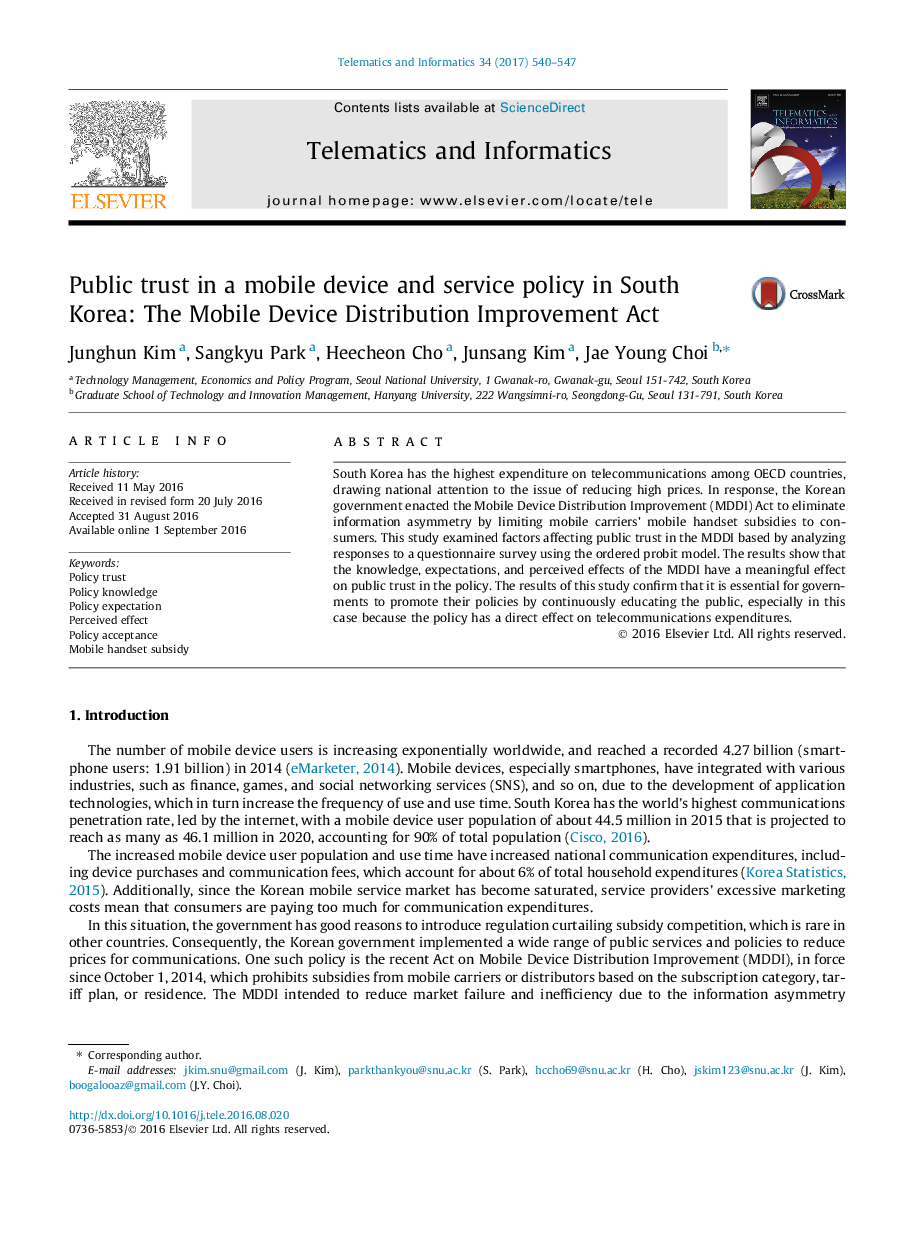| Article ID | Journal | Published Year | Pages | File Type |
|---|---|---|---|---|
| 4957767 | Telematics and Informatics | 2017 | 8 Pages |
Abstract
South Korea has the highest expenditure on telecommunications among OECD countries, drawing national attention to the issue of reducing high prices. In response, the Korean government enacted the Mobile Device Distribution Improvement (MDDI) Act to eliminate information asymmetry by limiting mobile carriers' mobile handset subsidies to consumers. This study examined factors affecting public trust in the MDDI based by analyzing responses to a questionnaire survey using the ordered probit model. The results show that the knowledge, expectations, and perceived effects of the MDDI have a meaningful effect on public trust in the policy. The results of this study confirm that it is essential for governments to promote their policies by continuously educating the public, especially in this case because the policy has a direct effect on telecommunications expenditures.
Keywords
Related Topics
Physical Sciences and Engineering
Computer Science
Computer Networks and Communications
Authors
Junghun Kim, Sangkyu Park, Heecheon Cho, Junsang Kim, Jae Young Choi,
